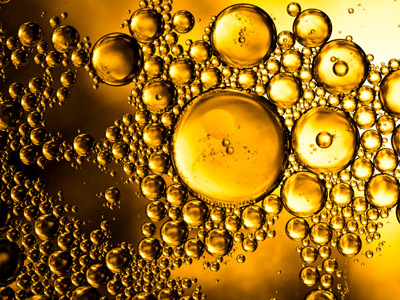
Ask the AI Tutor
Need help with Unit 4 - Causal or Association Relationship of Variables? Ask our AI Tutor!
AI Tutor - Lucy
Connecting with Tutor...
Please wait while we establish connection

I think that as the pH increases, the number of bubbles given off will decrease.
Unit 4 - Causal or Association Relationship of Variables
Scientists often find patterns in data, but patterns alone do not prove one thing causes another. This quiz tests correlation, causation, and careful thinking in GCSE Biology.
1 .
How many different types of variables are there?
One
Two
Three
Four
Dependent, independent and control
2 .
Which is the key independent variable of the hypothesis "I think that as the temperature increases, the rate of bubbles given off will increase due to the increased number of collisions of particles."?
Collisions
Number of bubbles
Rate
Temperature
In this experiment you would be changing the temperature and observing the number of bubbles given off. The variable that you will be changing is the independent variable
3 .
The dependent variable is...
the factor we change
the factor we control
the factor we measure
the X factor
It is called this because its values depend on the values chosen for the independent variable
4 .
Directly proportional means that...
as X increases, Y increases in proportion giving a straight line graph
as X increases, Y decreases
as X increases, Y increases a small amount
As X increases, Y increases greatly
On a scatter graph, if the line of best fit is straight, you have a relationship where the dependent variable is directly proportional to the independent variable. In other words, whenever you double variable X, variable Y will double too
5 .
As X increases, Y increases demonstrates a...
negative correlation
positive correlation
causal relationship
association relationship
We have no way of knowing if X caused Y to increase, but if X increased and Y also increased, there is a positive correlation
6 .
The key independent variable is...
the factor we change
the factor we keep the same
the factor we measure
the factor we ignore
The key independent variable is the factor we are studying in our investigation and is the basis for our hypothesis
7 .
Causal implies that...
X caused Y to increase
An unknown factor caused Y to increase
Z was involved
Other factors were involved
When a correlation is spotted, it is then time to see if scientific theory can be used to explain it. If it can't then the correlation may not be causal. Scientists working at the 'cutting edge' of their subject may have to develop new theories to explain the correlation. This is often how new discoveries are made
8 .
What is the dependent variable in the prediction "I think that as the pH increases, the number of bubbles given off will decrease."?
pH
Decrease
Increase
Number of bubbles
The dependent variable is the one you measure in the experiment
9 .
An association is not the same thing as a causal relationship because...
causal means one thing has definitely influenced the outcome
causal means other factors could have caused the outcome
association means they are connected by lots of factors
association is not relevant
Sometimes the correlation is associative because one of the control variables has not been identified and controlled
10 .
What is an independent variable in a scientific experiment?
A factor which never changes
A factor which changes
A factor whose values are changed or selected by the investigator
A factor which must always be kept the same
It can also be referred to as the key variable
**Unlimited Quizzes Await You! 🚀**
Hey there, quiz champ! 🌟 You've already tackled today's free questions.
Ready for more?
Ready for more?
🔓 Unlock UNLIMITED Quizzes and challenge yourself every day. But that's
not all...
not all...
🔥 As a Subscriber you can join our thrilling "Daily Streak" against other
quizzers. Try to win a coveted spot on our Hall of Fame Page.
quizzers. Try to win a coveted spot on our Hall of Fame Page.
Don't miss out! Join us now and keep the fun rolling. 🎉
**Unlimited Quizzes Await You! 🚀**
Hey there, quiz champ! 🌟 You've already tackled today's free questions. Ready for more?
🔓 Unlock UNLIMITED Quizzes and challenge yourself every day. But that's not all...
🔥 As a Subscriber you can join our thrilling "Daily Streak" against other quizzers. Try to win a coveted spot on our Hall of Fame Page.
Don't miss out! Join us now and keep the fun rolling. 🎉






